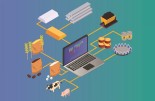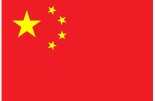Gavekal Dragonomics: Dependence and restraint
Gavekal Dragonomics: Dependence and restraint

China is doing its best not to suffer collateral damage from the Western sanctions against Russia. Not only does it need to continue exporting to the US and European markets, it also depends on Western inputs to produce goods.
By Dan Wang, Technology Analyst, Gavekal Dragonomics
This dependence is most acute in three critical technologies: chips, seeds and aviation. Efforts to increase self-sufficiency are under way, but China is unlikely to free itself within the present decade. Such continued dependence should encourage Western confidence in China’s geopolitical restraint, as the sanctions against Russia have given China a hint of what it could face in a confrontation with the West. But once China decides it no longer needs Western technologies, it may no longer feel such restraint.
The sanctions against Russia have not only cut off its access to US and European export markets and financial systems, but have also limited its ability to buy many crucial parts and components such as semiconductors. Major Asian technology suppliers, including Japan, South Korea and Singapore, have joined the US in banning some exports to Russia. If similar sanctions were ever applied to China – whether for supporting Russia or for attacking Taiwan – they would be devastating for China’s ability to remain a manufacturing superpower.
Major Asian technology suppliers, including Japan, South Korea and Singapore, have joined the US in banning some exports to Russia. If similar sanctions were ever applied to China, they would be devastating for China’s ability to remain a manufacturing superpower.
Part of the issue is that multinationals make a lot of China’s exports. According to government statistics, around two-thirds of its high-technology exports are produced by foreign-invested firms. These include the likes of Tesla and the enormous contract manufacturer Foxconn. They would probably not be able to continue operating in China under US sanctions. But a more critical problem is that sanctions would make it impossible for many Chinese firms to continue making goods, because they would not be able to import various core technologies they need. The political leadership is very aware of this technological vulnerability, and in policy documents1 tends to focus on three areas: semiconductors, biotech and aviation.
Semiconductors
By one measure, the capabilities of China’s leading chipmaker, SMIC, are around six years behind those of the world’s leading chipmaker, TSMC. But even that significantly understates China’s weakness in semiconductors. Chinese chip manufacturers depend on production equipment that comes predominantly from the US, the Netherlands and Japan (all of which have joined the sanctions against Russia). Domestic firms are barely out of the starting gate in supplying the equipment needed to make semiconductors. Furthermore, chip design requires specialized software, which is dominated by US firms. For China to achieve anything close to self-sufficiency in chips, it does not only have to catch up to leading-edge manufacturing capabilities, but also reinvent all the necessary hardware and software tools.
Seeds
China’s leadership has acknowledged domestic weaknesses in the biotechnology involved in producing modern hybrid or genetically modified seeds. One senior official even referred2 to seeds as the ‘semiconductors of agriculture’. Top leader Xi Jinping intensified the political focus on food security and widened it to include the supply of meat, vegetables and fruits. At this year’s annual legislative session, he called3 for greater technological self-reliance in seeds. Although the value of China’s seed imports is not substantial (roughly $ 500 million each year), many of its vegetable seeds are imported. Without high-quality foreign seeds, China would have a harder time producing the full range of food products that its people demand.
China might eventually eliminate the last sources of Western technological dependence. But such gains cannot be accomplished by short-term decree and will take a sustained scientific effort over many years.
Aviation
China’s commercial aviation industry, like that of Russia and every other country, is supplied by the global duopoly of Airbus and Boeing. Both companies have now stopped supplying parts and repair services to Russia, which will make it harder and harder for it to keep planes operating. Russia, like China, has a sizable military aviation sector that does produce its own parts and planes. But neither country is truly self-sufficient in the production of one of the world’s most complex manufactured goods. Over the past decade, China’s Comac has been developing a domestic airliner, but its C919 still requires a lot of inputs from the West, notably the jet engine made by GE and Safran. The Trump administration in 2020 discussed whether it should restrict the export of the engine, before ultimately approving4 it.
Conclusion
China has made enormous technological progress over the last two decades. It is capable of producing a wide range of industrial products on its own, and for some areas, like solar power, Chinese firms are the only game in town. But there are critical technologies where the country remains far behind the West. While China has rhetorically condemned sanctions on both itself and Russia, the need to preserve access to these technologies has kept its response restrained. Much like how Beijing never retaliated against US sanctions on Chinese technology firms by imposing its own measures on US firms in China, it will avoid giving material support to Russia’s invasion and instead persist in a balancing act between Russia and the West. China might eventually eliminate the last sources of Western technological dependence. But such gains cannot be accomplished by short-term decree and will take a sustained scientific effort over many years. Only then will Beijing have more freedom on issues that are likely to antagonize the West.
References:
[1] National Development and Reform Commission (article in Chinese).
[2] China food security: Beijing calls biotech breakthrough to improve seed industry, Orange Wang, Dec 23, 2020.
[3] Xi visits CPPCC members in sector of agriculture, welfare and social security, Xinhua, March 7, 2022.
[4] Trump supports Sales of High-Tech products to China, in blow to Hawks, Ted Mann, Feb 18, 2020
|
SUMMARY China is doing its best not to suffer collateral damage from the Western sanctions against Russia. Not only does it need to continue exporting to the US and European markets, it also depends on Western inputs to produce goods. This dependence is most acute in three critical technologies: chips, seeds and aviation. Efforts to increase self-sufficiency are under way, but China is unlikely to free itself within the present decade. |








